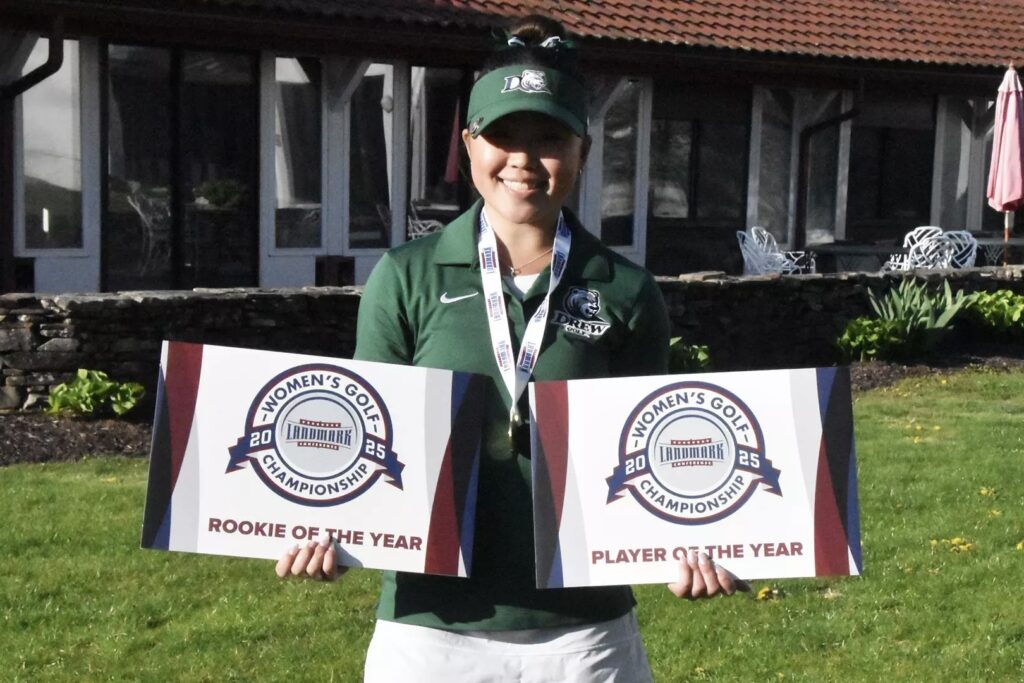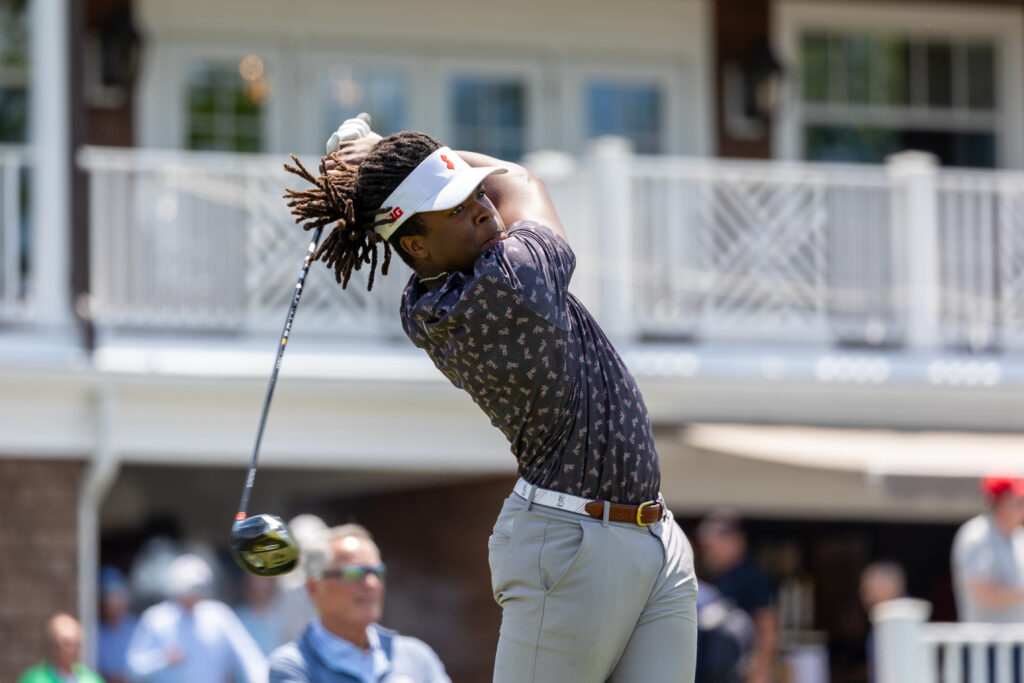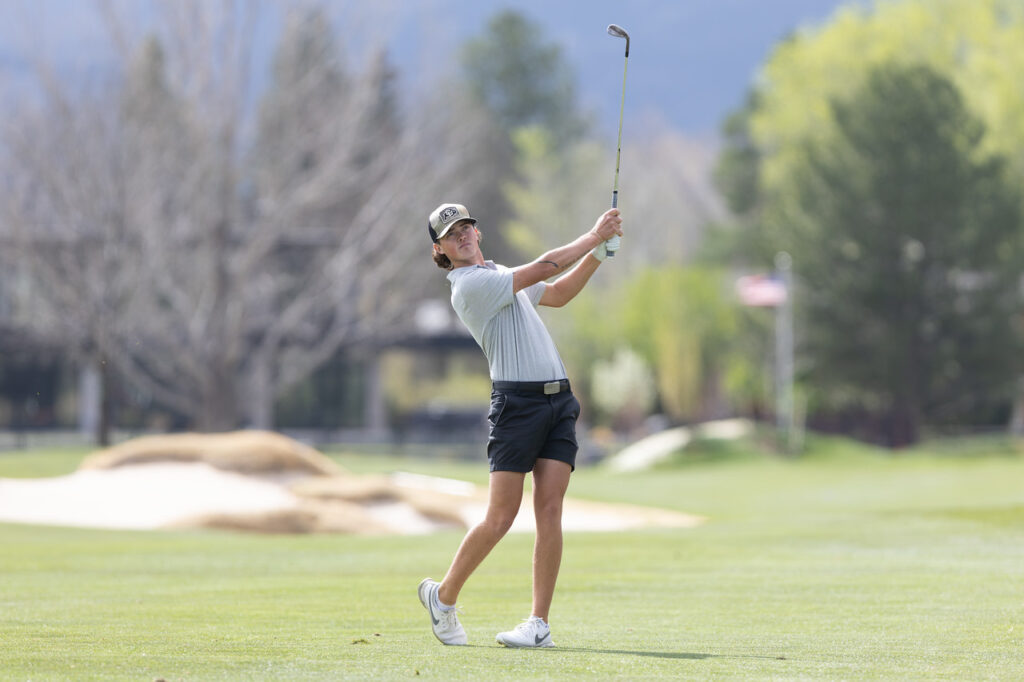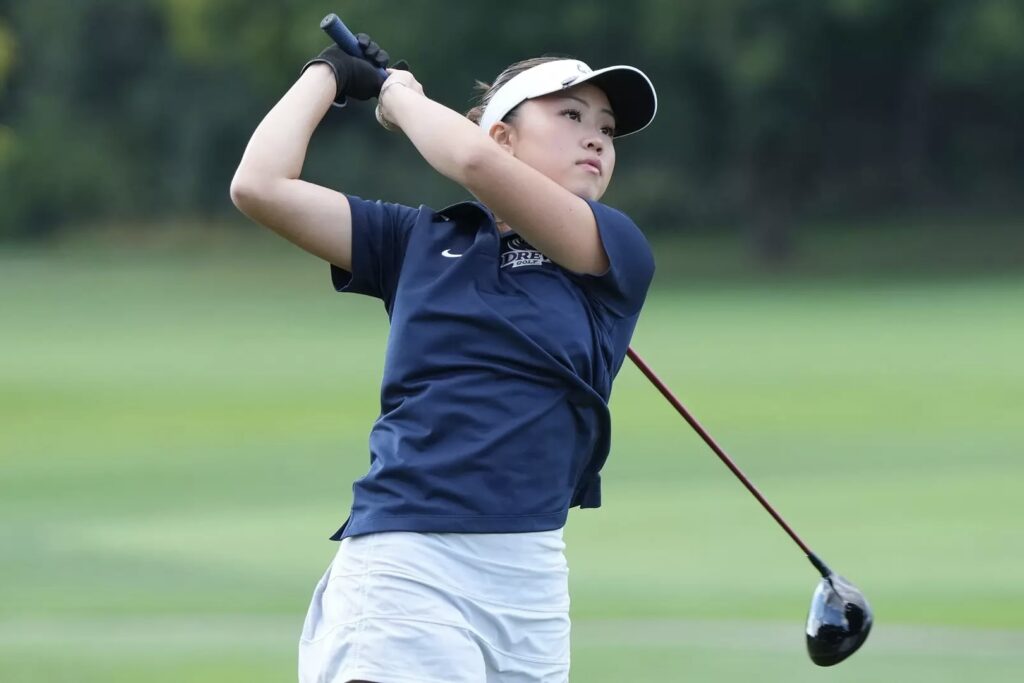Now in its fifth year, the First Tee National Championship returns this week to the University of Notre Dame. It’s an opportunity for top players from across the country to showcase the skills they developed at their chapters.
All eight past champions are currently on college golf rosters, including First Tee – Green Valley Ranch alumnus Hunter Swanson, who plays at the University of Colorado, Boulder. While playing collegiate golf can be a rewarding experience, the process of getting there can be demanding.
First Tee – Greater Washington DC alumna Joey Nguyen is a member of the team at Drew University in Madison, New Jersey, where she was named Women’s Golfer of the Year by the Landmark Conference last season. First Tee – West Virginia alumnus Argyle Downes is a First Tee Scholar who’s heading into his sophomore season at Rutgers University.
As former First Tee National Championship competitors, we asked Joey, Argyle and Hunter about their journeys from First Tee to college golf.

When did you start thinking about college golf?
Joey started reaching out to coaches in 8th grade, sending introductory emails to get on their radar. She wasn’t sure which NCAA Division would be the right fit — but she knew it was important to get her name out as a potential recruit.
Meanwhile, Argyle got serious about college golf after his freshman year of high school, when his confidence caught up with his ambition. “I always had a goal but until that time I didn’t really have true self belief,” he said.
Key takeaway: While there’s not a specific recruiting timeline you need to follow, start early if you can, and know that belief in your own potential is just as important as raw skill. As you navigate the recruitment process, remember to set goals that are positive, specific and under your control.
How important are academics?
Both players emphasized the importance of grades in the recruiting process. “There are so many successful players that grades often become a deciding factor whether a player will be part of the team or not,” Argyle said, noting that the razor thin margin between recruits sometimes leaves coaches looking for reasons to leave a player off the roster.

Joey noted that grades and test scores are also critical for academically selective schools, opening doors that golf scores can’t.
Key takeaway: Strong academics can show good judgment, which is important to college golf coaches.
What’s your advice for connecting with coaches?
For Hunter, a busy competition schedule helped him get his name in front of coaches. “I played as many of the top junior golf tournaments as I could, not only to play against the best junior golfers, but knowing that college golf coaches would be watching the scores,” Hunter said.
When it comes to outreach, Joey used a combination of emails, phone calls and texts to build relationships with coaches. Hunter said social media is also an important recruitment tool.
When you do exchange messages with coaches, it’s important they come from players, not parents. Joey recommends starting with a concise intro email that includes:
- Name, school and grad year
- Tournament schedule
- Key stats and highlights
Once the conversation starts, it’s important to send updates, results and anything else that keeps you on their radar. “If a coach doesn’t respond, that doesn’t mean you stop emailing. Be persistent,” she said.
When coaches do reach out, you can expect them to ask a wide variety of questions:
- What are your academic and athletic goals?
- What do you want in a team, school and coach?
- What’s your practice routine and tournament schedule?
- What are your strengths and weaknesses — on and off the course?
Key takeaway: Coaches may not find you unless you help them, and while it can be intimidating, try to show your personality, not just your golf skills. Showing that you can work well with others and respect differing opinions indicates you’re likely to be a good teammate.
What were the biggest surprises during your freshman year?
A campus visit helped Joey decide on Drew University. “I could see myself living there and really enjoying the courses and practice facilities we have,” she said. “I considered what was important to me and what I wanted to get out of my college experience, and that also helped me decide.”
But she faced a challenge before the start of the season, when the coach who recruited her left for another school. “That was definitely tough,” she said.
Hunter also had to be flexible throughout the process as he wasn’t able to go on recruiting visits during the COVID-19 pandemic. Ultimately, he decided on Colorado because he felt like he could contribute to the team, grow as a player and student and trust the coaching staff, he said.

For Argyle, the biggest surprise has been just how busy life is for student athletes. “From 6 a.m. until bedtime, it’s honestly just a fully packed day with practice, recovery and school responsibilities,” he said. “There may be a few small breaks but it’s a very busy and demanding schedule.”
Key takeaway: It’s important for collegiate golfers to be flexible and prepared for change. While you’re likely to face challenges during your college golf career, it’s important to consider what you can learn from them.
Any final words of advice?
During periods when you’re playing well, play in as many tournaments as you can to boost your scoring average and showcase your skills, Joey recommends. And keep in close contact with coaches: “Send updates frequently about how you are playing, what you are working on or anything you would like to share,” she said. “It never hurts to show you are interested or really want to play at their school.”
“My best piece of advice for juniors hoping to play in college is to honestly love working hard and love the sacrifices you have to make to succeed,” Argyle said. “I may not have been the most talented or successful junior golfer, but I really love the sport and love playing and competing, and without that I wouldn’t be in the position I’m in today.”
And Hunter recommends enjoying the journey as much as possible. “This is something that a lot of kids in this world do not get the opportunity to experience, and it is a process that could change the life of someone forever,” he said. “Enjoy the process, don’t put too much pressure on yourself to perform and understand that things will work out how they are supposed to with hard work, dedication and having fun.”
The First Tee National Championship is part of our full slate of national participant opportunities, which are designed to keep teens engaged with the program. In addition to competitive golf opportunities, we offer leadership programs, a girls empowerment event and a community service workshop.

